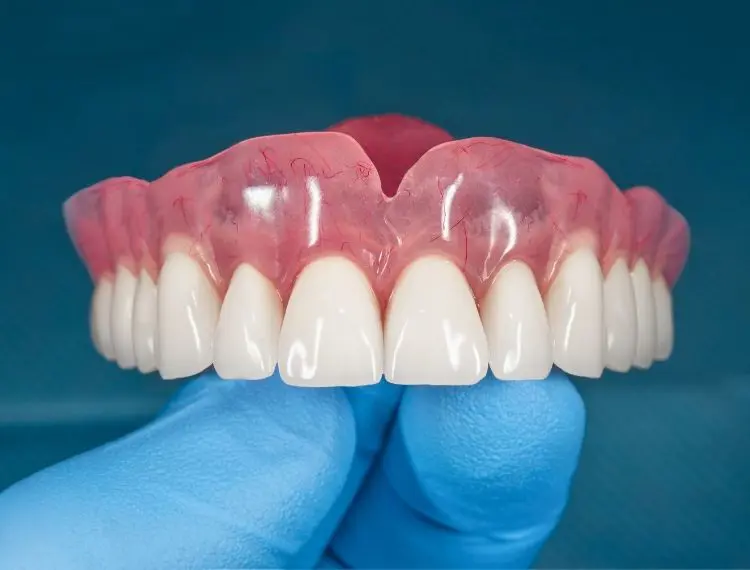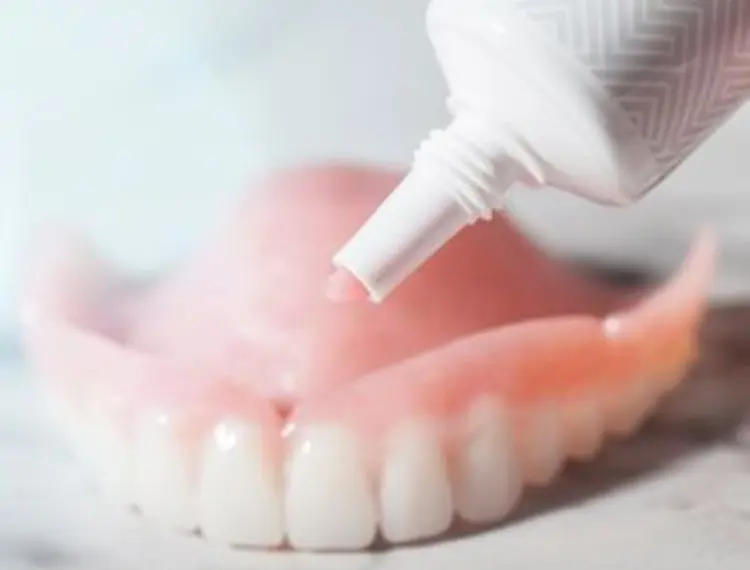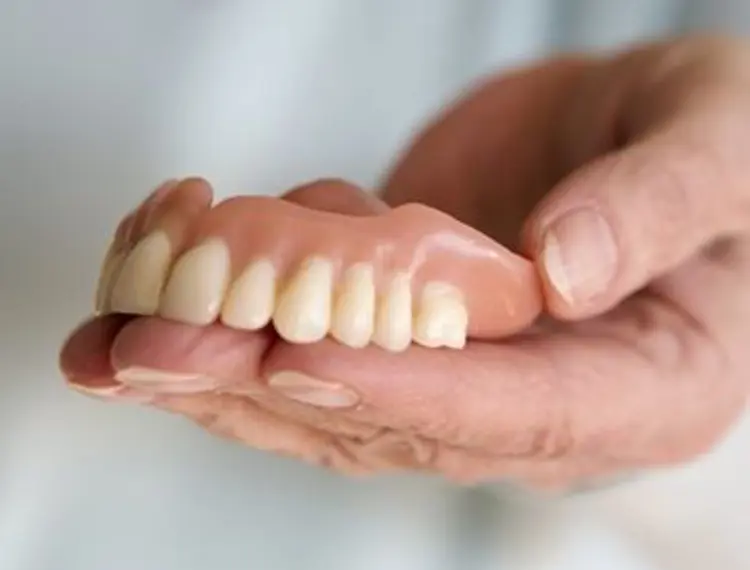
Key messages
- Dentures are a cost-effective option for replacing one or more missing teeth.
- Dentures can be a permanent or temporary option for replacing missing teeth.
- You can see a dentist or dental prosthetist to have your denture made.
- If your dentures do not stay in place in your mouth, you may need to use denture adhesive.
If you are missing some, or all of your teeth, your dentist may suggest a denture to replace your missing teeth. Replacing missing teeth can help you to eat, speak and smile comfortably and with confidence.
Dentures are a cost-effective way to replace missing teeth. They can be a temporary or permanent option and made for people of all ages. Dentures are made of plastic, or combination of a thin, light metal called cobalt chrome and plastic. Each material has benefits. Your dentist will talk with you about these benefits when choosing what material to use. The teeth on your denture can match the colour and shape of your teeth.
What are the types of dentures?
If you have lost all of your teeth, your dentist may recommend a full denture. A full denture can replace all teeth in your upper or lower jaw, or both. The denture sits on the gums. It will support your lips and cheeks and keep the distance between your nose, mouth and chin the same. This distance can get smaller over time if you do not replace a full jaw of missing teeth. Full dentures are usually made out of plastic.

Your dentist may recommend a partial denture as an option to replace one or more missing teeth. The denture will sit on your gums and hold on to your remaining teeth. The body of your denture may be made from plastic, or a thin, light metal called cobalt chrome. Your dentist will talk to you about the different options when planning your denture.

If you have a full denture, you may have the option of having dental implants put into your jaw that will hold the denture in place. This can be done from both the upper and lower jaws. The denture sits on your implants and gums, and you can still take the denture out of your mouth.

How are dentures made?
Dentures are custom-made for your mouth. They can be made by a dentist or dental prosthetist. A dentist will see you at their dental clinic for appointments to measure and fit your new denture. They will send the denture to a laboratory to be built between appointments. A dental prosthetist will see you at the dental clinic and build the denture themselves between appointments.
You will need multiple appointments to get a new denture. The number of appointments you need may depend on:
- how many teeth your denture will replace
- if you have had a denture before
- if you need teeth removed to get your new denture.
Your new denture can be a little uncomfortable at first, just like a new pair of shoes. Your dentist or dental prosthetist may need to make small changes to how it fits until you can wear it comfortably.
Do you need a tooth removed for your new denture?
If you need to have teeth removed before you get your denture, your dentist may suggest that you wait a few months after your teeth are removed. Your gums and bone can heal during this time. This can create a better starting point for making your new denture.
If you need a denture immediately, you may be able to get an ‘immediate’ denture. This denture is made while you still have your tooth or teeth. On the day that your tooth or teeth are removed, your denture is ‘immediately’ put into your mouth. You may need more follow-up appointments and you may need to have a new replacement denture made sooner.
Caring for your dentures
- Just like your teeth, brush your denture in the morning and at night.
- Take your denture out of your mouth to clean it.
- Brush using a spare toothbrush or a denture cleaning brush and liquid hand soap.
- Do not use toothpaste to clean your denture – it is too rough to clean plastic.
- Clean your denture over a towel or bowl of water to protect it if you accidentally drop it.
Soak your denture in a denture cleaning solution to remove bacteria and disinfect them. You can buy these cleaning solutions from supermarkets or pharmacies. Follow the directions included with the product you buy.
Take your dentures out and put them in a safe location while you sleep. You can choose between storing your denture in a container filled with water or is empty and dry. Keeping your dentures out while you are sleeping is similar to taking off your shoes and socks so that your feet are not always covered.
Return to your dentist or dental prosthetist for any changes to be made to your denture so you can wear it comfortably. It is important to see your dentist regularly for a check-up even if all of your teeth are replaced by dentures. The shape of your mouth can change over time causing your denture to not fit or function properly. Sometimes older dentures need more material added to the base to help them fit securely again. Sometimes a new denture may be needed instead.
Your dentist will also check the soft tissues in your mouth for signs of oral cancer or conditions that can develop from wearing a denture, such as oral thrush.





